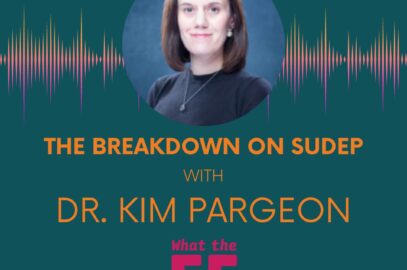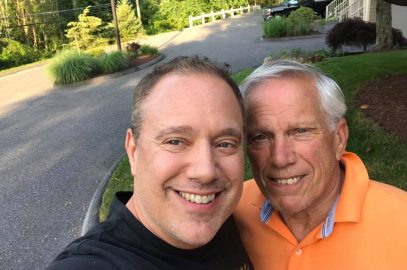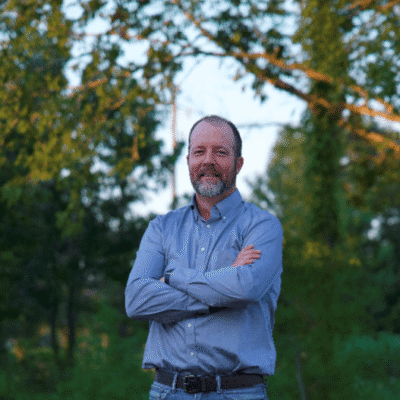 This article was originally published in 2010. As of December 2013 estimates of SUDEP, are closer to a range of 5.5% – 18%.
This article was originally published in 2010. As of December 2013 estimates of SUDEP, are closer to a range of 5.5% – 18%.
What is SUDEP?
According to the Danny Did Foundation, Sudden Unexplained Death in Epilepsy (SUDEP) refers to the unexpected death of a seemingly healthy person with epilepsy, where no cause of death can been found.
Recent SUDEP Articles
Original Article (2010)
Epilepsy is not that serious, right? I mean, its not like you can die from it or anything. Right?
According to the American Epilepsy Society, “it is very uncommon but not unheard of for people to die with a seizure.”
I suspect that the families that have lost a loved one to SUDEP or Sudden Unexplained Death in Epilepsy might have a different opinion.
‘Rare’ and ‘very uncommon’ are what patients hear from medical professionals when they ask the question, “Can I die from epilepsy?” But after having epilepsy for years, I just didn’t believe that the odds were in our favor, considering 3 Million people in the USA have it (and 60 mil in the world). So I did a little digging.
It didn’t take much. I quickly found that the AES considers ‘very uncommon’ to be the approximately 45,000 deaths each year.
According to the Epilepsy Foundation of America, about the same number of people die each year from seizures as die from either breast cancer or traffic accidents.
Yep, you read that right. Breast Cancer or Traffic Accidents. And really, how often are we walking to raise money for epilepsy or passing laws to fight for all those people dying from seizures?
Like I said the odds are not in our favor, there are more people in the USA (3 million) with epilepsy than there are people living with:
Autism (1.5 million)
Parkinsons (1.5 million)
MS (400,000)
So, now you know epilepsy’s little secret. But what can you do? Well, start by talking about it. Below are some sites you can visit that are talking about epilepsy.
CURE
Talk About It
Epilepsy.com
For more startling statistics read Jon Meacham’s article in Newsweek titled “A Storm in the Brain“. Or click on
Epilepsy By the Numbers
Update:
As of 2016 the American Epilepsy Society and the Epilepsy Foundation have joined forces with the NINDS, CURE, and Danny Did Foundation among other family foundations to raise awareness of SUDEP in a variety of ways including a Partners Against Mortality Conference.













Judith van Praag
Jessica,
Thank you for sharing your experiences on this blog and for sharing very important information and sources. I will pass on your blog address and share where possible.
Would you consider adding the blogspot gadget “following” as an option for visitors beside the RSS subscription? There's something “real” about seeing the avatars for those who are return visitors.
Warmly,
Judith
Morgan
Thank you so much. I stumbled across your blog on a Google search, and I am so happy to see someone finally sticking up for epilepsy. When I read the statistics of SUDEP vs. breast cancer deaths, I was very hurt that people often overlook something so traumatizing and serious. It feels like the world is saying to me “we don't care because you don't look sick.” Epilepsy awareness month is in November, right after Breast Cancer Awareness month. You see all these facebook statuses for cancer awareness and whatnot throughout the entire year, but NEVER for epilepsy.
Living Well With Epilepsy
@Morgan
Morgan,
Thanks for your comment! We just need more people to get out there and talk about it. Get the facts out there — create some buzz. It will take time like anything else.
Keep the feedback coming!
Jessica
riverking
This is some very interesting statistics. I worked with the epilepsy association several years ago with a education program we took to the elementary schools. During the program we had a question answer period where the kids could ask us any questions they had. We always got the question about if someone could die from a seizure and we were told to answer “no”. This sheds a whole new light on that. another site that you can add to your list of sites about epilepsy is http://www.epilepsyconnect.com
Jessica
@riverking
Riverking,
For two decades I was told no you can't die then info started to come out about SUDEP. Thanks for your comment and I will definitely check out epilepsyconnect.com
Jessica
Andy Morley
Hi Jessica, great post.
I may be wrong but there is a thing called “Status Epilepticus” Which can be fatal as I understand. Basically where the brain is in a constant state of Seizure, very dangerous and can cause brain damage.
Epilepsy Action (UK Based Non-Profit) confirms this here.
http://www.epilepsy.org.uk/info/seizures/status-epilepticus
Thanks – Andy.
Jessica
@Andy Morley
Andy,
I'll have to do a write up on status epilepticus. Thanks for your comment!
Jessica
mrslinkgetter
The death rate is actually 50,000-60,000 according to NIH and the epilepsy foundation. The Institute of Medicine just came out with a new report on the epilepsies and this agreed with the 50,000 number. This includes status, accidents that involved seizures, suicides of people with epilepsy (a common cause of death for people with epilepsy), and SUDEP. You are VERY accurate that this information MUST get out to the public. There is an AES commission working on informing patients appropriately. There is also several groups working on informing the public. SUDEP Aware, the DANNY DID FOundation, and a few others. Keep working to raise awareness! We all need to speak out!
GInny
Gilbert Hart
My son Jeremy Hart who just passed away from seizure on November 1 he had been fighting this sence he was 6 month old he had surgery a couple of yrs ago to reverse the seizures it worked for a while then started over again my life has been turned up side down I never thought you could die from seizures I have a brother who has had them for many of yrs the dr back when he was born told my parents he would not live to be 15 well he is now 70 yrs old so I just don,t understand but hope and pray that someday they will find a cure for Epilepsy
Jessica Keenan Smith
Gilbert,
I cannot express how sorry I am to hear of your loss. I wish I had a way for us all to understand. There are many other families that have suffered similar losses. Here are a few resources you may find helpful:
http://www.candlelightconcert.org/
http://joeyssong.com/
http://www.epilepsyconnection.org/SUDEP.html
http://www.sudepaware.org/index.html
http://www.aesnet.org/pame/
And know my thoughts are with you and your family.
Jessica
Heather jobe
My daughter is 12 years old and was just diagnosed w epilsepy im very concerned and worried and don't even know where to start. What can I do to prevent this happening. Her first seizure was a 3 min grand mal and she stopped breathing. I'm so worried and am so afraid of her being out of my site . Please help any advice or comments is much appreciated . Thank u
Jessica Keenan Smith
Heather,
Here's a bit of hope during what I can imagine is an extremely difficult and frightening time: I was diagnosed at about 12 and I turned (ugh) 40 this year. I graduated high school and received my undergraduate degree. I am married and I have a beautiful daughter. For many people living with epilepsy it is possible to have a full life.
I have found that living in moderation seems to help me. In other words I try to eat right, take my meds on time, get enough sleep and get exercise. Sounds basic I know but it makes a difference for me.
Try also to remember your daughter is 12 and probably worries about regular 12 year old girl things (friends, etc.).
You may also want to check out my articles on how to find a great neurologist and how to fire a great neurologist. They may come in handy.
And know that you and your family are in my thoughts.
Best,
Jessica
Hayley
Dear Heather,
I am so sorry for what you are going through. I was diagnosed with epilepsy when I was 16 (am 26 now). My road has definitely been rocky. But I can’t imagine the pain of watching your child suffer. I hope I can be of help.
To help your daughter’s breathing, in case she has another grand mal, make sure she is turned on one side, so her airway is clear, and not lying on her stomach or back. During a seizure, move her away from stairs, furniture, sharp objects, or anything/anywhere else she can hurt herself while seizing. Do NOT put anything in her mouth. She will not swallow or bite off her tongue.
Follow your doctor’s instructions on when to call 911. After the seizure she may be confused, then she will want to go into a deep sleep. She’ll wake up later with a little bit of a headache, and probably want to sleep for some/the rest of the day.
Tell the neurologist about any and all seizures. Is he starting her on any medications? There are also things like the Ketogenic diet…but I had a tough time with that one (but it works great for some people).
I also recommend she wears a medical bracelet. This will ease your mind a bit when you two can’t be together. And more than anything, just talk to family, friends, neighbors and her school and educate them about your daughter’s seizures in case someone needs to jump in.
Stay strong, you’re a great Mom and you’ll both be just fine 🙂
Ram
Wow, 45,000 people is far from uncommon! Out of curiosity, how difficult is it to diagnose someone with epilepsy before they have a seizure? Are these people not being classified as having epilepsy?
Ram
Social Security Disability Help
Jessica
According to the NIH and the NINDS are making strides in research:
http://www.ninds.nih.gov/disorders/epilepsy/epilepsy_research.htm#section1
but from what I understand (I’m not a neurologist or a primary care physician) it is still difficult to diagnose epilepsy even after some types of seizure activity.
You should check out the IOM’s report on epilepsy.
https://livingwellwithepilepsy.com/2012/04/iom-epilepsy-across-spectrum.html
It is long, but is is driving the excitement and activity in the epilepsy community right now.
SUDEP is being tackled as part of that initiative. If you want to learn more about the 45,000 deaths here is another link for you:
http://www.aesnet.org/pame/
I hope all of this info helps!!
Jessica
Kathy Hucks
Hello, please check out the Second PAME Conference, organized by many partners in fighting Epilepsy and searching for treatments, and of course, ultimately a cure.
This event brings together researchers, clinicians, family advocates, and family members who have lost children, nieces, nephews, friends to SUDEP. It is an amazing collaborative event and only the 2nd event of its kind. If you are interested in attending but would need some financial assistance, please contact us. Information on PAME is here: http://www.aesnet.org; wait for PAME Registration banner to appear on home page, click there for details!
dorris
Im a epilepsy person i got from 16yr old and im now 37 when I go in a fit i can feel i going in fit now but when im, in the fit i don’t know what going on around me when I come right i feel my tongue is sore or some place on my body then I don’t know where did i get. I sure a person who did help me tell me maybe the next day and every month i repeat for my medicine for 3mnth and the 4mnt i see my doctor but i thank my Lord he is always with me
Elizabeth Ellis
My two year old son had his first generalized seizure in OCT 2015. Epilepsy was confirmed a few weeks thereafter. He’d been having odd episodes at night but before he was diagnosed, I had no idea they were seizures. I pray that we’ll find a successful medication regimen because he’s still having seizures despite taking his current meds and changing our life to allow him more time to sleep.
Pat Edwards
My son died from a seizure in 2006 he start at the age of 17 and took a year to get in under control with meds. he actually was getting better. But before he died he haven’t had one in 2 years. So he was gonna get taken off medicine but didn’t make it. He would get these seizures in morning or after waking up. They just need more information on this to save people or more awareness about it.